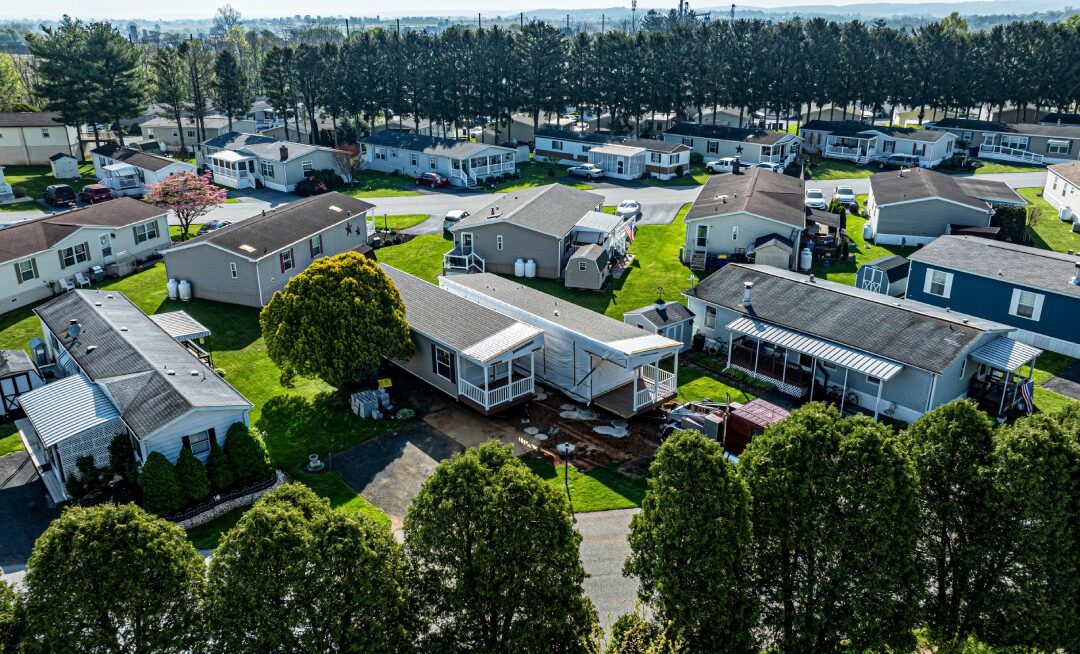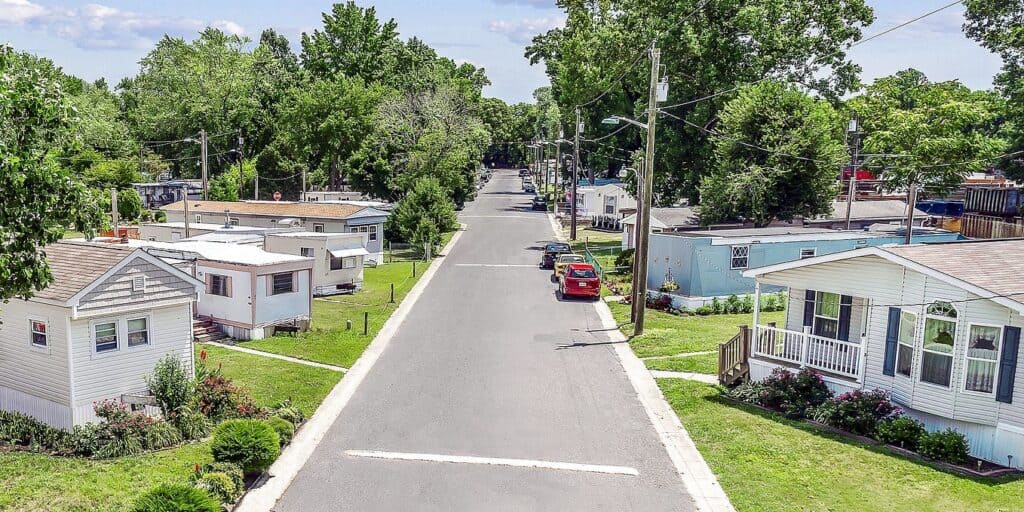Mobile home parks have long stood as a unique and valuable segment within the real estate market. Offering affordable housing solutions while generating steady cash flow for investors, they have become increasingly attractive in today’s evolving housing landscape. Yet, the foundation of any successful mobile home park acquisition lies in securing the right property. Traditionally, developers and investors relied heavily on local connections, private sellers, or specialized brokers to locate suitable land. Nevertheless, the Multiple Listing Service (MLS), a tool often associated with residential real estate transactions, offers untapped potential for those looking to identify parcels fit for mobile home park development.
This article explores how the MLS can be strategically leveraged to streamline the search process, enhance decision-making, and uncover properties that meet the specific criteria essential for mobile home communities.
Understanding the Unique Requirements of Mobile Home Park Properties
Before delving into the ways MLS can assist, it is important to establish what makes land suitable for mobile home parks. Unlike single-family or multifamily residential developments, mobile home parks require parcels that accommodate multiple homes on leased plots, with adequate infrastructure to support communal living.
The land must be large enough to host a significant number of mobile home sites while allowing space for internal roads, utilities, green areas, and sometimes additional amenities. This necessitates an expansive parcel often ranging from several acres upwards, depending on the park’s planned scale.
Beyond size, zoning regulations play a pivotal role. Many municipalities have dedicated zoning classifications or overlays for manufactured housing communities, though in other regions, parcels zoned for agricultural, mixed-use, or other flexible residential purposes may qualify, provided rezoning or special permits are attainable. Prospective land buyers must be diligent in understanding local zoning codes, setback requirements, and density limitations.
Terrain and topography also bear heavily on feasibility. Ideally, the land should be relatively flat or gently sloping, reducing site development costs and easing infrastructure installation. Access to existing utility services such as water, sewer, electricity, and telecommunications is another critical factor, as utility extensions can significantly inflate project budgets if unavailable nearby.

How MLS Expands the Reach for Mobile Home Park Land
The MLS is best understood as a centralized database designed to facilitate residential real estate transactions by providing detailed listings of available properties. While traditionally populated with single-family homes and condominiums, the MLS also includes vacant land and commercial parcels, making it a valuable resource for developers seeking mobile home park sites.
One of MLS’s strongest advantages is the breadth of information consolidated into an accessible platform. Sellers list their properties with precise details like zoning designations, acreage, lot dimensions, and existing infrastructure. Many listings incorporate photographs, topographical maps, tax data, and sometimes environmental disclosures.
By utilizing MLS, investors can scan large geographic areas, apply specific filters such as minimum acreage or zoning type, and compare multiple options side by side. This contrasts with relying solely on local networks or off-market deals, which may limit exposure or result in missed opportunities.
Furthermore, MLS platforms increasingly integrate Geographic Information System (GIS) capabilities, providing aerial views and overlay maps that reveal land contours, neighboring land uses, flood zones, and proximity to utilities and highways. Such spatial data allows buyers to perform preliminary assessments before conducting site visits.
Crafting an Effective MLS Search for Mobile Home Park Properties
To maximize MLS’s potential, a methodical search tailored to the unique needs of mobile home parks proves essential. General land or residential searches rarely yield ideal parcels without customization.
First, filtering by acreage narrows options to properties large enough to host a mobile home park. While exact acreage requirements vary, looking at parcels starting from about five acres provides a solid base for exploration.
Next, zoning filters must align with permitted uses. Properties zoned for manufactured housing or residential multifamily use are immediately relevant. Where zoning is ambiguous or permitting processes exist for rezoning, parcels categorized under agricultural or mixed-use zoning warrant consideration.
Additional search parameters include price ranges aligned with budget constraints and location preferences tied to market demand and resident access to services. Some MLS platforms now allow filtering based on utility availability, which can dramatically streamline the due diligence phase.
Location itself carries multiple layers of importance for mobile home parks. Proximity to employment centers, schools, medical facilities, and commercial hubs enhances the desirability of the community. However, parcels directly abutting busy highways or industrial zones may pose challenges in terms of noise, safety, and community appeal.
Benefits of MLS Over Traditional Land Search Methods
MLS stands out for creating transparency and efficiency in identifying potential mobile home park sites. Traditional sources—such as direct owner contact, public records searches, or relying on local brokers—often present fragmented information requiring extensive follow-up.
With MLS, buyers gain a single repository populated with current listings, historical data, and often price trends or days on market statistics. This enables clearer market comparisons and identification of motivated sellers or undervalued parcels.
Moreover, MLS integrates the various professional roles involved: brokers can list properties specifically marketed for development, while buyers can count on standardized listing formats that include essential data points.
Such standardization helps reduce the risk of misinformation and gaps in knowledge, which are common when purchases rely on word-of-mouth leads or informal market intel.
The Role of Due Diligence: Beyond MLS Listings
While MLS provides a valuable starting point, successful outcomes depend on a comprehensive evaluation of each shortlisted parcel. Preceding any acquisition is a layered due diligence process involving site inspections, municipal consultations, and feasibility studies.
Contacting local zoning officials is imperative to verify current regulations, understand the likelihood and process for rezoning if needed, and learn about any development restrictions or community plans that may influence the investment.
Utility providers should be approached to confirm service availability and potential connection fees. Even if MLS listings mention utilities, direct confirmation is essential to avoid costly surprises.
Environmental factors warrant special attention. Parcels near floodplains, wetlands, or contaminated sites pose additional challenges or regulatory hurdles that could delay or derail development.
Enlisting the expertise of civil engineers or land planners helps further evaluate topography and site grading needs, ensuring the property can support the infrastructure requirements of a mobile home park.
Lastly, financial analyses including potential acquisition costs, development expenses, and projected rental income must be run to justify the investment and forecast returns.
Building Relationships with Real Estate Professionals to Enhance MLS Usage
While MLS expands data access, collaboration with experienced real estate agents familiar with mobile home park development can significantly elevate outcomes. Such professionals understand local market nuances, zoning intricacies, and negotiation tactics.
Specialized brokers often have insights into off-market land opportunities or upcoming listings that have yet to enter the MLS. They may also provide guidance on community dynamics, helping investors align acquisition strategies with regional demand.
Developers benefit from partnering with agents who appreciate the unique considerations of mobile home parks and can translate MLS data into actionable leads.

MLS and Technological Advancements
The landscape of MLS platforms continues evolving, incorporating sophisticated tools such as data analytics and machine learning. These advancements hold promise for mobile home park investors.
Predictive analytics may soon suggest parcels with strong development potential based on changing zoning laws, infrastructure projects, or demographic trends.
Enhanced mapping functions and integration with third-party environmental and municipal databases reduce the need for early-stage manual research, accelerating deal timelines.
As technology develops, those who master MLS utilization in conjunction with expert advice and thorough due diligence will maintain an edge in a competitive market.
Frequently Asked Questions
Q1: What makes mobile home parks an attractive real estate investment?
A: Mobile home parks are appealing investments due to their role in providing affordable housing, generating stable income streams, and often having lower operating costs than traditional multifamily properties. The land itself also tends to appreciate, offering a dual layer of asset value.
Q2: How can the Multiple Listing Service (MLS) specifically help in finding land for mobile home parks?
A: MLS offers a centralized, data-rich platform that allows investors to streamline the land search. By using specific filters for acreage, zoning, and location, and by analyzing historical data and topographical information, developers can efficiently identify parcels that align with the unique requirements of mobile home park development.
Q3: What are the most critical land requirements for establishing a mobile home park?
A: Key requirements include substantial acreage, relatively flat or gently sloped topography, proper zoning (or the potential for rezoning), existing or accessible utility infrastructure (water, sewer, electricity), and safe, reliable road access suitable for large manufactured homes.
Q4: How crucial is zoning when searching for mobile home park land on MLS?
A: Zoning is paramount. While some areas have specific “Mobile Home Park” designations, investors often seek land zoned for agricultural, commercial, or certain industrial uses that may allow for rezoning or specific use permits. Verifying current zoning directly with local planning departments is essential, as is understanding the rezoning process.
Q5: What utility considerations should developers prioritize when using MLS for MHP land search?
A: It is critical to confirm the availability of municipal water, sewer, and electrical lines at or near the property line. MLS listings may indicate this, but direct contact with utility providers is necessary to confirm service capacity and connection costs. The expense of extending utilities to a raw land parcel can be significant and must be factored into the overall feasibility.
Q6: What kind of “advanced” data can MLS provide for analyzing mobile home park land opportunities?
A: Beyond basic details, MLS offers historical sales data for the parcel and comparable properties, pricing trends, and ownership history. Many platforms also integrate Geographic Information System (GIS) tools and aerial imagery, allowing investors to visually assess topography, identify potential wetlands or flood plains, and observe surrounding land uses.










